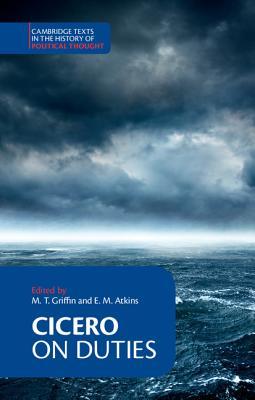On Duties Book Summary
TL;DR
Cicero's "On Duties" explores the ethical responsibilities of individuals in society through the lenses of wisdom, justice, and beneficence, aiming to guide moral conduct in both public and private life.
What is On Duties about
"On Duties" (De Officiis) is Marcus Tullius Cicero's final philosophical treatise, examining the moral obligations of the Roman elite during the late Republic. Written in a Greek theoretical framework, it emphasizes the essential nature of duty in all aspects of life—public, private, professional, and personal. Cicero articulates a framework of ethical values that revolve around three central tenets: wisdom, justice, and beneficence, underscoring that the fulfillment of these duties is foundational to moral living. This new translation and accompanying scholarly commentary aim to clarify Cicero's intent and significance, showcasing the work's influence on subsequent political thought.
On Duties 8 Key Takeaways
The Nature of Duty
Cicero posits that duty is an inherent aspect of all human interactions, emphasizing that failure to fulfill one’s obligations leads to moral decay.
Threefold Division of Duty
The text categorizes moral obligations into three key areas: wisdom (knowledge and discernment), justice (fairness and equity), and beneficence (kindness and charity).
Impact on Governance
Cicero argues that ethical leadership is crucial for the stability of the state, and that the governing class must uphold these moral standards.
Philosophical Context
The work situates Ciceronian ethics within the broader context of Greek philosophy, drawing on earlier thinkers to formulate his ideas.
Moral Authority
Cicero’s treatise has been viewed as a significant source of moral authority throughout history, influencing various philosophical and political frameworks.
Practical Application
Cicero illustrates that the principles discussed are applicable in all aspects of life, guiding one's actions in personal and professional realms.
The Role of Reflection
He emphasizes the importance of self-reflection in understanding and fulfilling one’s duties to ensure moral correctness.
Legacy of Cicero
The work has profoundly impacted later thinkers and remains a key text in the study of ethics and political philosophy.
Top On Duties Quotes
- "For no phase of life can be without its moral duty; on the discharge of such duties depends all that is morally right."
- "Any man can make mistakes, but only an idiot persists in his error."
Who should read On Duties?
"On Duties" is ideal for students of philosophy, political science, and ethics, as well as anyone interested in the moral foundations of leadership. Readers will gain insights into how ethical principles can be applied to contemporary situations, enhancing their understanding of civic responsibility.
On Duties Best Reviews
- Cicero's "On Duties" is a profound exploration of ethical responsibility, illustrating timeless moral principles relevant to both leaders and individuals alike. — The Philosophical Review
- M.T. Griffin and E.M. Atkins have done an admirable job in making Cicero's complex ideas accessible, providing necessary context and clarity. — Journal of Classical Studies
People also liked these summaries
On Duties FAQs
What are the main themes in Cicero's On Duties?
The main themes include the nature of moral duty, the importance of justice, and the role of benevolence in human interactions, all framed within the context of ethical leadership.
How has On Duties influenced modern thought?
Cicero's exploration of ethics in governance has profoundly influenced Western political philosophy, shaping ideas about moral responsibility and civic duty in contemporary discourse.
